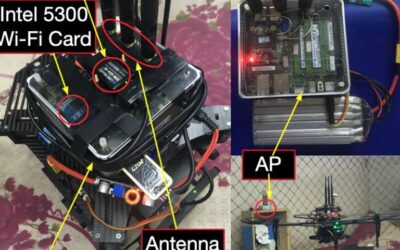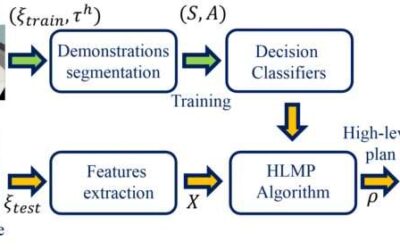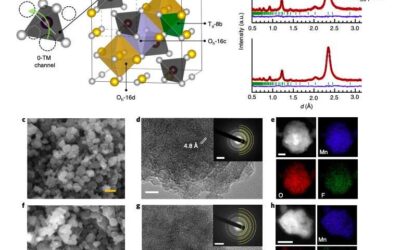In recent years, 3-D printing has opened up interesting new possibilities for the large-scale production of electronic components, as well as of a variety of other objects. To this end, research teams worldwide have been trying to create materials and structures that...
Hi Tech & Innovation
A perovskite-based diode capable of both light emission and detection
Light sources and detectors are key components of countless technological devices on the market today. For instance, light emitting diodes (LEDs) are often used as a source of light in displays and other technologies, while photodiodes are used to detect light in...
First successful laser trapping of circular Rydberg atoms
Rydberg atoms, which are atoms in a highly excited state, have several unique and advantageous properties, including a particularly long lifetime and large sensitivities to external fields. These properties make them valuable for a variety of applications, for...
A design strategy to produce stable and high-energy aqueous zinc-manganese dioxide batteries
The global demand for rechargeable batteries has grown exponentially over the past decade or so, as they are needed to power the increasing numbers of portable electronic devices such as smart phones, laptops, tablets, smart watches and fitness trackers. To work most...
An indoor MAV pose estimation system that leverages existing Wi-Fi infrastructure
Micro aerial vehicles (MAVs) could have numerous useful applications, for instance, assisting humans in completing warehouse inventories or search and rescue missions. While many companies worldwide have already started producing and using MAVs, some of these flying...
A human-like planner that allows robots to reach for objects in cluttered environments
While research in the field of robotics has led to significant advances over the past few years, there are still substantial differences in how humans and robots handle objects. In fact, even the most sophisticated robots developed so far struggle to match the object...
A strategy to achieve ultrahigh power and energy density in lithium-ion batteries
In recent years, lithium-based batteries have become widely used to power a wide range of electronic devices, including tablets, smart phones and portable computers. These batteries have different compartments, called cells, each of which contains a positive electrode...
A cyclic phosphate-based electrolyte for safe and high voltage lithium-ion batteries
In light of the ongoing shift toward renewable energy technologies and the growing number of Internet of Things (IoT) devices, researchers worldwide have been trying to develop batteries that can operate more efficiently and for longer periods of time. Lithium-ion...
A flower pollination algorithm for efficient robot path planning
Over the past decade or so, researchers worldwide have developed increasingly advanced techniques to enable robot navigation in a variety of environments, including on land, in the air, underwater or on particularly rough terrains. To be effective, these techniques...
Measuring Chatbot Performance
Assessing chatbot performance isn’t always as straightforward as evaluating other technological tools, as it often entails trying to understand how a user perceives the agent.









